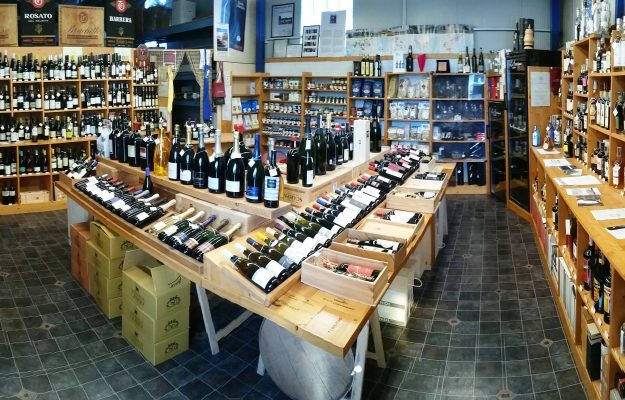Antonino Trimboli, a pioneer in the sector, and on the threshold of 100 years (born in 1922), summarized the many indications about the future of wine bars, in a few, essential words, to describe the wine shop that was, that is and that will be, “the winemaker must sell wine, and to sell wine you have to know it well. Supermarkets sell the bottles. You are not supermarkets”. There will be “hubs” for wineries and the territory, as Professor Magda Antonioli Corigliano (Bocconi University and one of the leading wine tourism experts) defined them in the conference, “The wine shop in the next 40 years. Wine, tourism, territory, digitization, Agro-food craftsmanship”, held during "Vinitaly Special Edition 2021". Vinarius, the Association of Italian Wineries counting over 120 members (total turnover is close to 50 million euros), covering the entire national territory, founded in 1981 and today led by Andrea Terraneo, organized the conference. The deputy director of the Italian TV channel, TG5, Andrea Pamparana (awarded the Vinarius Award as "ambassador" of Italian wine bars, ed.) led a discussion on the future of wine shops, tourism and digitization, in the post-pandemic era.
“The near future”, explained Andrea Terraneo, “requires all the players in the wine supply chain to define concrete and political tools that can hold up to the challenges we will face”. Wine shops, as Professor Antonioli stated, are now a "hub" for wineries and territories, where tourists are looking for experiences. We are experiencing a "strange" kind of wine tourism, now. It is more and more mass tourism, but does not have the same characteristics, while it is no longer niche. Rather, it is made up of curious people who no longer seek only "cool", but traditional destinations as well, who are looking for food and wine, and more. They want active experiences, not the "way of life", but the "way of living". In other words, they want to live for a few days like the people who live in that territory. So, we need good management in the territories to give people what they are looking for; that is, the possibility of learning about and getting to know the wines and the territories. It is a matter of governing tourism in the villages, often made up of high-spirited tourists, who want to go beyond the visit to the wineries. We need investments, in training and professionalism. The average tourist level has risen. Wine shops have become a sort of museum. They give information about the territory, and they know the producers. They play an enormous role, and help the growth of value for the entire supply chain”. Further, Carlo Hausmann, expert in rural development, typical food production and farm house holidays, and Aldo Borelli, scientific director and general manager of R&D management, explained that even though wine shops and wine bars will need to update themselves to the possibilities of digital in terms of communication, user profiling and more, the real added value of wine shops are the people, the winemakers and their expertise. Maurizio Zanella, one of the most authoritative names in Italian wine and at the helm of Ca' del Bosco, the iconic winery in Franciacorta, said, “over the years, we producers, together with many wine merchants, have built a path that has allowed us to change the traits of viticulture and Italian wine. And, part of the merit of the journey goes to those who have made known unknown productions, contributing to a very rapid rebirth of Italian wine, such as winemakers. Wine”, said Zanella, “ according to me, is divided into two families, commodity wine and "noble" wine, linked to viticulture more than to enology. Trade in the second segment cannot be delegated to formulas such as online, for instance, because it needs someone to explain it, tell its story, and increase its value. So, the role of wine shops is by no means over. Some people think that online and mass retail will wipe out human relationships, but I don't believe this at all. The competitive advantage of wine shops is an enormous human factor, because it is direct knowledge, and bonding with the customer, which must be enhanced. The companies that make “noble wines” need to work on value positioning, and the wine shops are the only ones able to provide this. I think that those who gave you up for losers under the multi-channel system were very wrong. We need to update the ability to use today's tools, which will enhance our unique human and knowledge heritage”.
The invitation Zanella shared, in the opening greetings (together with those of the President of the Republic, Sergio Mattarella and the Prime Minister, Mario Draghi) with the president of the Agriculture Commission at the Chamber of Deputies, Filippo Gallinella was, “wine bars are important for our tourism, which is worth 12% of GDP. Today, we are looking for experiences and you will narrate them, because wine is experience. We all must be much more professional, though, about the Made in Italy story and sustainability as well”.
Copyright © 2000/2026
Contatti: info@winenews.it
Seguici anche su Twitter: @WineNewsIt
Seguici anche su Facebook: @winenewsit
Questo articolo è tratto dall'archivio di WineNews - Tutti i diritti riservati - Copyright © 2000/2026







































































































































































































